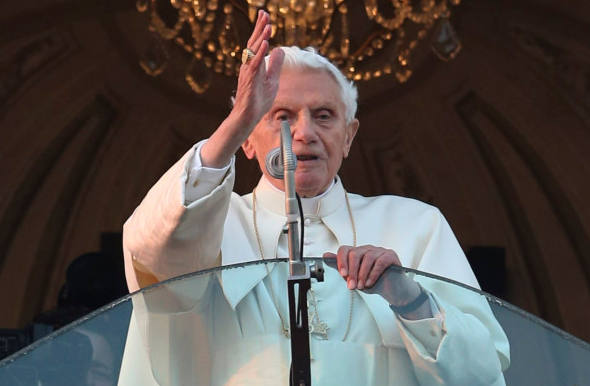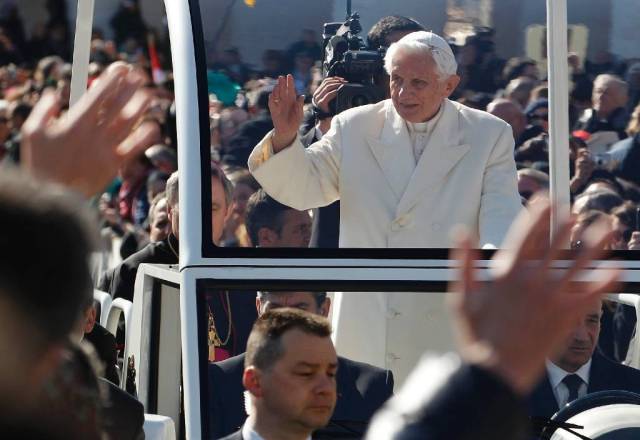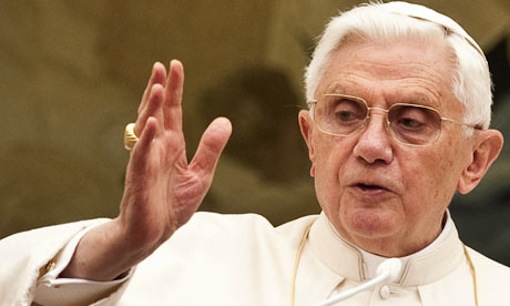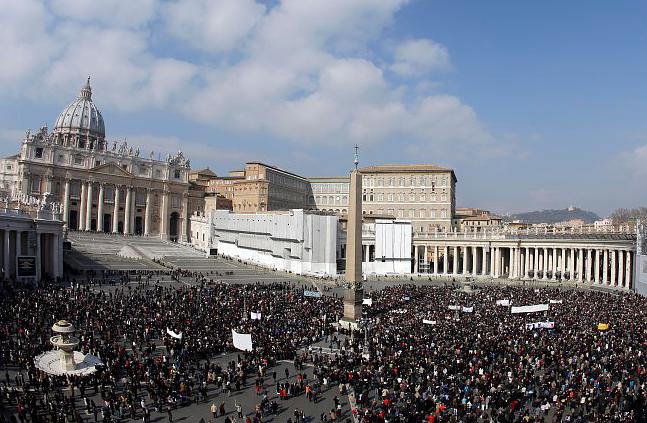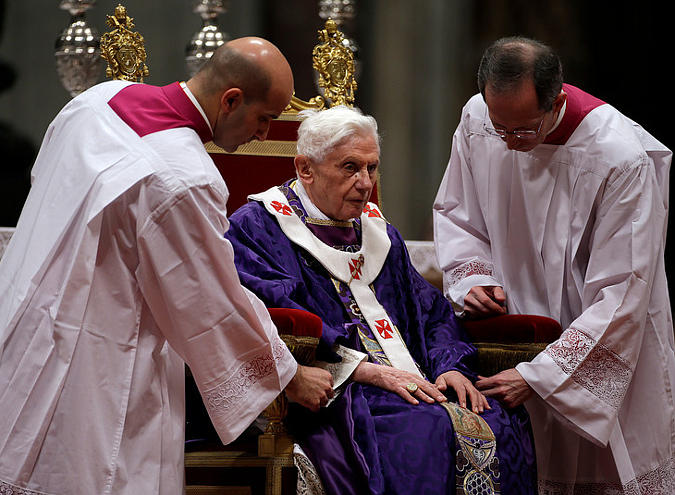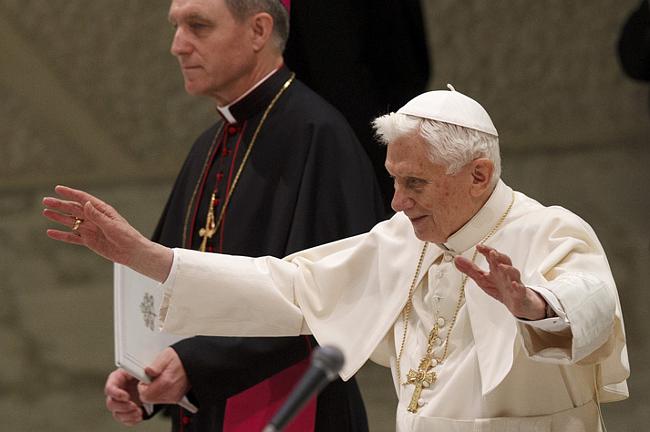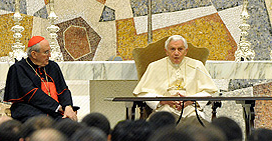Sist uke snakket pave Benedikt til prestene i Roma, om Vatikankonsilet, men ikke før i dag leste jeg en detajert beskrivelse/ gjengivelse av hva han sa – hos www.chiesa. I starten kan vi der lese hvordan den unge teologen Ratzinger ble innvolvert i konsilet, og mot slutten av foredraget (40 minutter uten noe manuskript) sier paven hvor ødeleggende det har vært at medienes feilaktige tolking av konsilet nesten helt fullstendig har fått forme folks forståelse. Bl.a. har liturgien måttet lide p.g.a. dette:
…. «And so also for the liturgy: the liturgy was not of interest as an act of faith, but as a matter where understandable things are done, a matter of community activity, a profane matter. And we know that there was a tendency, that was also founded historically, to say: sacrality is a pagan thing, perhaps even in the Old Testament, but in the New all that matters is that Christ died outside: that is, outside of the gates, meaning in the profane world. A sacrality therefore to be brought to an end, profanity of worship as well: worship is not worship but an act of the whole, of common participation, and thus also participation as activity.
«These translations, trivializations of the idea of the Council were virulent in the praxis of the application of liturgical reform; they were born in a vision of the Council outside of its proper key, that of faith. And thus also in the question of Scripture: Scripture is a book, historical, to be treated historically and nothing else, and so on.
Han sier også mer om hvordan medias feilaktige forståelse av konsilet har vært så ødeleggende for Kirken:
“We know how this Council of the media was accessible to all. Therefore, this was the dominant, more efficient one, and has created so much calamity, so many problems, really so much misery: seminaries closed, convents closed, liturgy trivialized. . . . And the true Council had difficulty in becoming concrete, in realizing itself; the virtual Council was stronger than the real Council.
Men nå, endelig, begynner den korrekte forståelsen av Vatikankonsilet å komme til syne:
«But the real power of the Council was present and, little by little, is realizing itself more and more and becomes the true power that then is also true reform, true renewal of the Church. It seems to me that, fifty years after the Council, we see how this virtual Council is breaking up, is becoming lost, and the true Council is appearing with all of its spiritual power. And it is our task, precisely in this Year of Faith, beginning from this Year of Faith, to work in order that the true Council, with its power of the Holy Spirit, may be realized and that the Church may really be renewed. Let us hope that the Lord may help us. I, retired with my prayer, will always be with you, and together we will go forward with the Lord. In the certainty: the Lord triumphs!”

